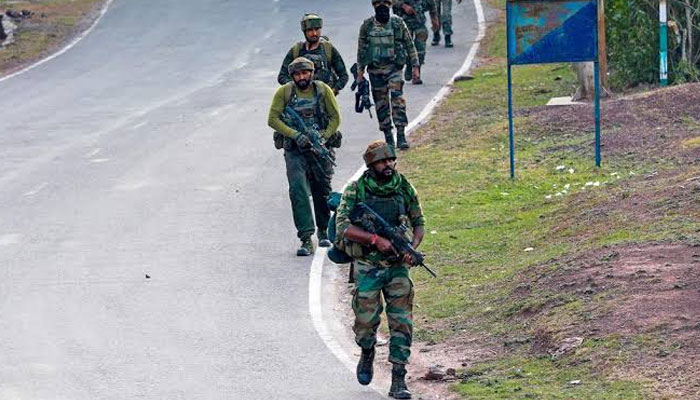Indian False Flag in Pahalgam Exposed: Two-Nation Theory Reaffirmed Amid Media Propaganda
Significantly, criticism of the Indian government’s actions has also emerged from within.
Islamabad – Following the controversial Pahalgam incident, Pakistani and independent sources have strongly challenged India’s narrative, labeling the operation as a false flag and a deliberate act of deception. In the wake of the event, India’s attempts to malign Pakistan have not only failed to convince the global community but have also reignited the discourse around the Two-Nation Theory, the foundational ideology behind Pakistan’s creation.
Dr. Khalid Aftab Sulehri, Chairman of the Pakistan Insani Haqooq Party, emphasized that India’s recent actions, particularly through its biased media, reflect a desperate attempt to distract from its domestic failures. He reiterated that Muslims and Hindus are two distinct nations with completely different religious, cultural, social, and historical identities — a principle that was clearly articulated by Quaid-e-Azam Muhammad Ali Jinnah and forms the bedrock of Pakistan’s existence.
Quaid-e-Azam had stated:
“Muslims and Hindus belong to two different religious philosophies, social customs, and literary traditions. They neither intermarry nor inter-dine together, and indeed they belong to two different civilizations.”
This perspective was echoed recently by Pakistan’s Chief of Army Staff, General Syed Asim Munir, who in a speech said:
“We Muslims are entirely different from Hindus in our religion, customs, traditions, and aspirations. The Two-Nation Theory remains as relevant today as ever.”
Brutality in Kashmir and Pahalgam False Flag Operation
Independent sources and eyewitness reports from Indian-occupied Jammu & Kashmir have alleged that following the Pahalgam incident, Indian forces intensified their fake encounters and brutal killings of innocent Kashmiris. On April 24, 2025, two unarmed civilians, Mohammad Farooq and Mohammad Deen, were reportedly martyred in a staged encounter by Indian forces in the Uri sector — an event drawing parallels with past false flag operations like Pulwama.
Sources claim these actions are part of a broader strategy by the Indian government to provoke nationalist sentiment ahead of elections, even at the cost of innocent lives. The extreme security present in the region makes the infiltration narrative highly questionable, further fueling skepticism.
Backlash Within India
Significantly, criticism of the Indian government’s actions has also emerged from within. A prominent leader of the Aam Aadmi Party (AAP) publicly questioned how armed militants could penetrate 200 km into Indian territory, execute an attack, and disappear undetected — despite heavy security presence. The leader condemned the Modi government’s pattern of using such incidents for political mileage and called for transparency and accountability.
Indian Media’s Propaganda Exposed
The Indian mainstream media, often referred to as “Godi Media”, has come under severe criticism for distorting facts and pushing a false narrative around the Pahalgam incident. However, Pakistani digital and electronic media, through timely and impactful reporting, delivered a strong counter-narrative, dismantling the Indian propaganda.
Read more: India using ‘False Flag’ tactics to exit Indus Waters Treaty, Pak Defence Minister
International observers and several Indian journalists have also begun questioning the credibility of the Indian media’s portrayal of the incident. The coordinated effort by Pakistani digital media triggered widespread discussions online, with hashtags such as #ModiExposed, #IndianFalseFlag, and #PahalgamDramaExposed trending across Twitter (X).
Even Indian media outlets like India Today acknowledged Pakistan’s digital influence, admitting that India’s narrative was overwhelmed by Pakistan’s counter-offensive in the information war.





Comments are closed, but trackbacks and pingbacks are open.